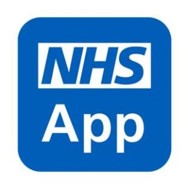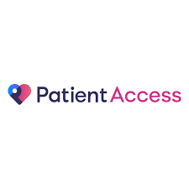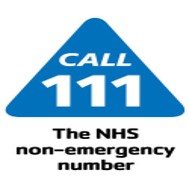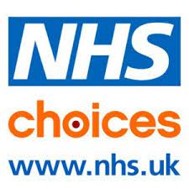
Moving More Platform Free Health and Wellbeing Support Armed Forces Day Learning Disability Week MARKYATE SURGERY – UPDATE ✅ Carers Week 2024 Healthy Living programme for people with type 2 diabetes Carers Coffee Morning ☕ Get Your Whooping Cough Vaccine Bank Holiday Opening Times
Practice Information
Chaperones
During your care, a clinician may need to examine you. Occasionally this may involve an examination of intimate areas. We understand that this can be stressful and embarrassing.
If this sort of examination is necessary:
-
We will explain to you why the examination is necessary and give you the opportunity to ask questions.
-
We will explain what the examination will involve.
-
We will obtain your permission before we carry out the examination.
-
You will be offered a chaperone to be present during the examination.
-
At all times we will respect your privacy during the examination and while dressing and undressing.
What is a chaperone?
A chaperone is a person whose role is to witness both a patient and a medical practitioner and to be a safeguard for both parties during a medical examination or procedure. The exact role of a chaperone will vary according to the clinical situation.
When booking an appointment that may involve an examination of intimate areas, please request a chaperone if you feel you would like one present. Our Patient Services Team will then make the necessary arrangements for a chaperone to be available.
If you have any questions or concerns about intimate examinations or chaperoning, please do not hesitate to ask us.
Confidentiality and GDPR
Patient notes are always treated with the strictest confidentiality and we comply with the Data Protection Act 1998 and the General Data Protection Regulation (GDPR).
Sharing information with others
We do not disclose confidential medical information regarding patients either verbally or in writing without the consent of the individual concerned to anyone else except when required by a hospital or similar organisation. With this in mind, any patient aged 16 and over must provide consent before we can share their private medical record with another person.
We understand that this may been seen as us being difficult and unhelpful by some, but we must respect and protect our patients’ information. We commonly have requests for information from partners, parents for a child over 16, children of elderly parents, etc. We are not trying to hinder your support; we must abide by the law.
If you are a patient who would like a third party to have access to your medical records please come into the surgery and ask our receptionists for a Consent Form. Once filled in and returned we will make a note of this in your records.
Please note that there are a number of ways in which patient’s can obtain access to their medical records online. Please see our Online Room for more information.
GP Net Earnings
All GP Practices are required to declare the mean earnings (eg average pay) for GPs working to delivery NHS services to patients at each practice.
The average pay for GPs who worked for six months or more in Rothschild House Group in the last financial year was £68,000 before Tax and National Insurance. This is for 18.50 whole time equivalent GP’s.
Infection Control
Our GPs and nursing staff follow our Infection Control Policy to ensure the care we deliver and the equipment we use is safe. We take additional measures to ensure we maintain the highest standards:
- Encourage staff and patients to raise any issues or report any incidents relating to cleanliness and infection control. We can discuss these and identify improvements we can make to avoid any future problems.
- Carry out regular/ annual infection control audits to make sure our infection control procedures are working.
- Provide annual staff updates and training on cleanliness and infection control.
- Review our policies and procedures to make sure they are adequate and meet national guidance.
- Maintain the premises and equipment to a high standard within the available financial resources and ensure that all reasonable steps are taken to reduce or remove all infection risk.
- Use washable or disposable materials for items such as couch rolls, modesty curtains, floor coverings, towels etc., and ensure that these are laundered, cleaned or changed frequently to minimise risk of infection.
- Make alcohol hand rub gel available throughout the building.
Named GP
We operate a personalised list for all patients. This means you will be allocated a GP when you register with one of our practices. For continuity of care, we recommend that you see your named GP. However, you are welcome to see another doctor if you prefer. This means that occasionally correspondence on your health may be addressed to an alternative GP in the practice.
Please be advised that all correspondence entering the practice is always directed to your registered GP, irrespective of the doctor named on the document.
Zero Tolerance
The Practice supports the government’s ‘Zero Tolerance’ campaign for Health Service Staff. This states that GPs and their staff have a right to care for others without fear of being attacked or abused. To successfully provide these services a mutual respect between all the staff and patients has to be in place. All our staff aim to be polite, helpful, and sensitive to all patients’ individual needs and circumstances.
However, aggressive behaviour, be it violent or abusive, will not be tolerated. Examples of behaviour that would be found unacceptable include, but are not limited to:
- Using bad language or swearing at practice staff,
- Any physical violence towards any member of the Primary Health Care Team or other patients, such as pushing or shoving,
- Verbal abuse towards the staff in any form including shouting at or verbally insulting the staff,
- Racial abuse and sexual harassment will not be tolerated within this practice,
- Persistent or unrealistic demands that cause stress to staff will not be accepted. Requests will be met wherever possible and explanations given when they cannot,
- Causing damage/stealing from the Practice’s premises, staff or patients,
- Obtaining drugs and/or medical services fraudulently,
- The taking of or recording of images of staff, doctors or nurses within the practice without their express consent.










